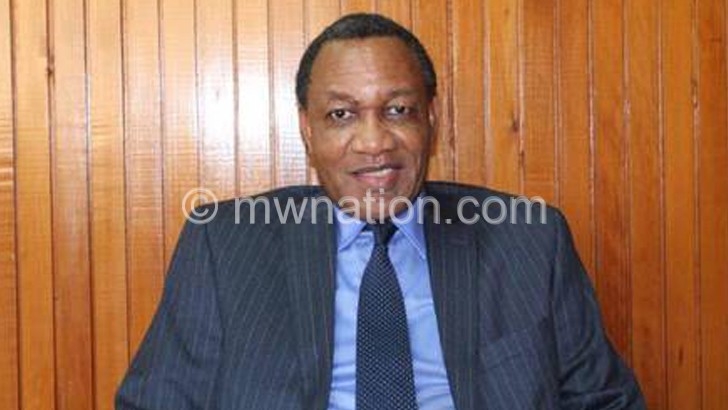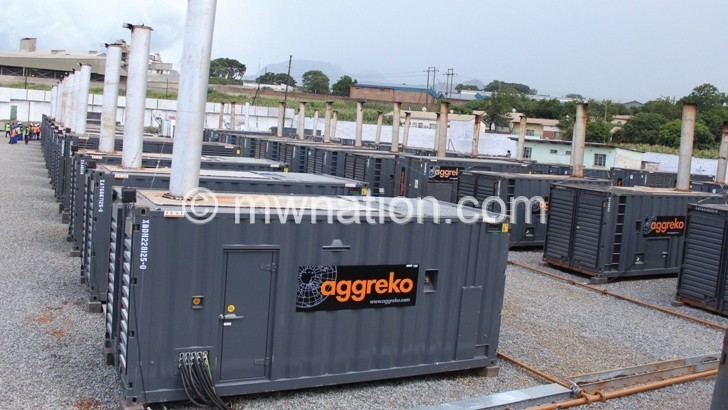Escom squeezed, treasury rebuffs K58bn bail-out plea
Ministry of Finance, Economic Planning and Development has refused to honour a K58 billion financial bail-out request from technically insolvent power utility Electricity Supply Corporation of Malawi (Escom) to enable it provide reliable power supply.
Escom says it found itself in the situation after its split that gave birth to Electricity Generation Company (Egenco) on January 1 2017 as part of Power Market Restructuring Programme aimed at improving efficiency in the market by, among others, having separate power generation and distribution entities.
Treasury has confirmed Escom’s bail-out request, but said it will not honour it.
In an interview, Secretary to the Treasury Ben Botolo said government is not in a position to bail-out the corporation’s operations because doing so would collapse the economy.
He said: “We are not capable of doing that right now. This year we managed to bail-out [State produce trader Agricultural Development and Marketing Corporation] Admarc on the same magnitude [about K45 billion].
“We cannot, therefore, go ahead and do the same with another institution. If we do that, we will start collapsing the economy because we don’t have that money. If we do that [the bail-out], it will force us to print money to that magnitude… The consequences might be huge if we take that path.”
Nation Online has established that Escom’s bad financial standing is crippling Egenco which it owes about K28 billion in unpaid bills for electricity supplied to its grid. Besides, documents Nation Online has seen also show that Escom owes Malawi Energy Regulatory Authority (Mera) K2.7 billion in unremitted Malawi Rural Electricification Programme (Marep) levies while other local and foreign suppliers are owed close to K40 billion.

Escom board chairperson Thom Mpinganjira yesterday confirmed the bail-out request and admitted the utility company is struggling due to inefficiencies.
He said: “We requested for the bail-out of around K50 billion because we are in a deficit of close to the same amount of money. Basically, we were not supposed to be in this position, but we are in this position due to mismanagement. Just in February [2018], we had a surplus of K18 billion, but we now face a deficit of K50 billion. This is due to bad procurement [decisions].”
Mpinganjira, himself a successful businessperson who owns a majority stake in FDH Financial Holdings and is new in his role at Escom, said apart from the bail-out, Escom needs to revisit its management styles to turn around the page on financial woes.
He confirmed that the bulk of the debt is owed to Egenco.
Egenco senior public relations officer Moses Gwaza also confirmed that Escom owes the power producer “huge sums of cash”, but could not disclose the amount.
News of Escom’s bail-out request filtered to Parliament where Budget and Finance Committee chairperson Rhino Chiphiko told one of the national budget cluster meetings that Escom’s request is not feasible.

He said: “Government keeps on borrowing and now we have the information that Escom through the comptroller of Statutory Corporations has asked for a bail-out of K58 billion to service debts due to the leasing loan of the gensets whose impact we haven’t seen as we are still having power blackouts. Are you going to do that, bailing it out like you did with Admarc?”
In an e-mailed response, Escom public relations officer George Mituka told Nation Online that management of the State-owned company refused to respond to questions on both the bail-out and soaring debt.
But speaking on behalf of Marep, Department of Energy spokesperson Joseph Kalowekamo confirmed that the State utility has defaulted on payments of some levies, but could not say how much.
The development come against a background of the country continuing to experience power outages amid challenges with ageing power generation and distribution infrastructure. Escom woes are generally linked to mismanagement and political interference with successive administrations abusing the utility company.
Our sister newspaper, Weekend Nation last week reported about one of such botched up procurement deals, the purchase of back-up heavy-duty diesel generators President Peter Mutharika recently switched on as a solution to blackouts was burdening the taxpayer with the cost being transferred to consumers through hiked tariffs.





